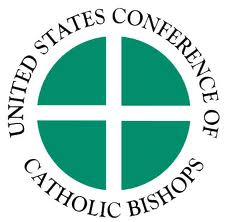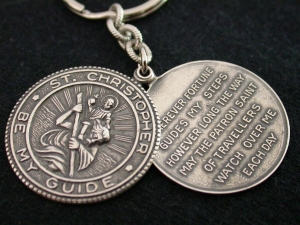Benedict XVI, who turns 86 in April, will abdicate the papacy at the end of this month. The election of a new pope is a good opportunity for a brief tutorial on some of the aspects of the papacy that the mass . . . Continue reading →
Romanism
How Many Ex Cathedra Pronouncements Are There?
One of the principal reasons that some Protestants have given for converting to Rome is the desire for certainty, to escape the alleged uncertainty attached to the confessional Protestant doctrine of the perspicuity of Scripture. The unstated implication is that, in Rome, . . . Continue reading →
Of Catholicity and Confusion
One of the most confusing aspects of Protestant-Romanist dialogue is trying to determine “who speaks for Rome?” and trying to answer the question, “What does Rome believe?” One reason it can be difficult to answer these questions is that Rome likes it . . . Continue reading →
Godfrey on Rome
Videos by independent film maker Anthony Parisi.
Rome Agrees With the Medievals Except When It Doesn’t
The related identification of Scripture as pure, holy, sufficient, and perfect—pure, holy, and sufficient in its teachings for the preaching of salvation and perfect or complete in its communication of those teachings—is a point of doctrine that marks out a major line . . . Continue reading →
What Does Rome Mean By Papal Infallibility?
The impending arrival of the Bishop of Rome to Twitter (@Pontifex) has raised the question of papal infallibility in a new, late modern way. This seems like a good time to remind ourselves of what Rome teaches about the infallibility of papal . . . Continue reading →
Who Are the True Catholics? (5a): Justification
Part 4: Who are the True Catholics (4): Assurance of Salvation In theological terms, there were two principles of the sixteenth-century Protestant Reformation: the formal principle and the material principle. The first, the formal principle, was the doctrine that Scripture is the . . . Continue reading →
Blame it on the Reformation: Hart Replies to Gregory
I have been in conversations before with Roman Catholics about a sacramental view of the universe and it still leaves be flummoxed. It is akin to the Reformed w-w phenomenon where Christianity is nothing unless it provides a comprehensive account of everything. . . . Continue reading →
An Interesting Conversation at My Door
Saturday morning a Roman Catholic laywoman and a male companion (who stood behind her with his rosary saying prayers) came to my door on behalf of St Mary Church in Escondido. She asked if there were any Catholics in the house. I . . . Continue reading →
Has Rome Really Changed?
Chris Castaldo (HT: Justin Taylor) takes issue with R. C. Sproul’s claim: The indisputable fact is that Rome made a number of strong, clear theological affirmations at the Council of Trent. Because Trent was an ecumenical council, it had all the weight . . . Continue reading →
Who Are the True Catholics? (4) The Assurance of Salvation
Part 3: Original Sin Perkins’ third point against Rome concerned the assurance of salvation. According to Perkins, the Protestants and Rome agree that: A man in this life may be certain of salvation; and the same thing does the Church of Rome . . . Continue reading →
Canonization, Saints, And Christ Our Only Mediator
The AP ran a story yesterday on the naming of seven new Roman “saints.” According to the story, “Two of the new saints were Americans: Kateri Tekakwitha, the first Native American saint from the U.S., and Mother Marianne Cope, a 19th century . . . Continue reading →
We Are Not Heretics or Schismatics
It is not because we have renounced any article of the catholic faith. We are not heretics. We cordially receive all the doctrines contained in that Symbol which is known as the Apostles’ Creed. We regard all doctrinal decisions of the first six ecumenical councils to be consistent with the Word of God, and because of that consistency, we receive them as expressing our faith. We therefore believe the doctrine of the Trinity and of the person of Christ as those doctrines are expressed in the symbols adopted by the Council of Nicea AD321, that of the Council of Constantinople AD381 and more fully that of the Council of Chalcedon AD451. Continue reading →
Who Are the True Catholics? (3): Original Sin
Part 2 The next point of contention is over the doctrine of original sin, i.e., the teaching that “in Adam’s fall sinned we all.” The issue is not whether we sinned in Adam but whether, as Perkins put it, “after baptism…how far . . . Continue reading →
Who Are The True Catholics? (2)
Part 1 In his treatise defending the Reformation understanding of Scripture against resurgent Romanism Perkins counted 22 issues between Protestants (his term) and Rome: 1 Of Free-will. 2 Of Original sin. 3 Assurance of salvation. 4 Justification of a sinner. 5 Of . . . Continue reading →
Who Are the True Catholics? (1)
There are truly important works that have simply been forgotten or unjustly ignored. One of those is William Ames’ Fresh Suit Against Human Ceremonies in defense of the Reformed theology and practice of worship. Another is William Perkins’ 1597 treatise, A Reformed . . . Continue reading →
R. C. Sproul: Are We Together? Not Really
This book is not what you might assume: a rehearsal of slogans. Rather, it is an intelligent and engaging primer for Protestants and Roman Catholics alike about what Rome actually teaches and what are the profound issues that continue to separate confessional, . . . Continue reading →
The Glory of Rome
The election of Pope Paul III in 1534 signaled the beginning of the counter-Reformation; that is Rome’s response to Luther, Calvin and their followers. One way Paul III hoped to counter the teachings of the reformation was to complete the construction of . . . Continue reading →
Another Area Where a Two-Kingdoms/Spheres Ethic Would Help
Rome still doesn’t seem to understand how grave the problem of pedophile priests is. NPR (HT: RNS) reports on the new measures adopted by the Vatican, including revisions to canon law, to address the crisis.
The Inquisition Isn’t Over, It Just Changed Clothes
RNS has a story about the Vatican’s policy of “pontifical secrecy.” Read the story. The approach Rome is taking toward the problem of sex abuse by priests reminds one of the policies followed in the inquisition. What was established for the preservation . . . Continue reading →










